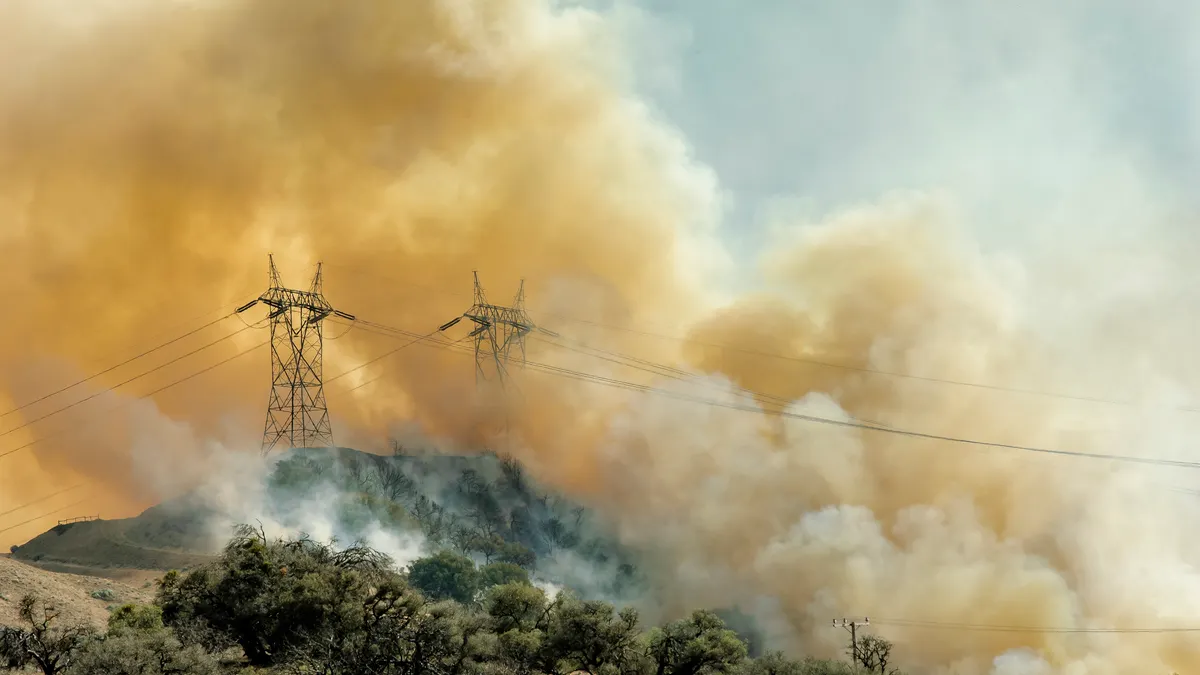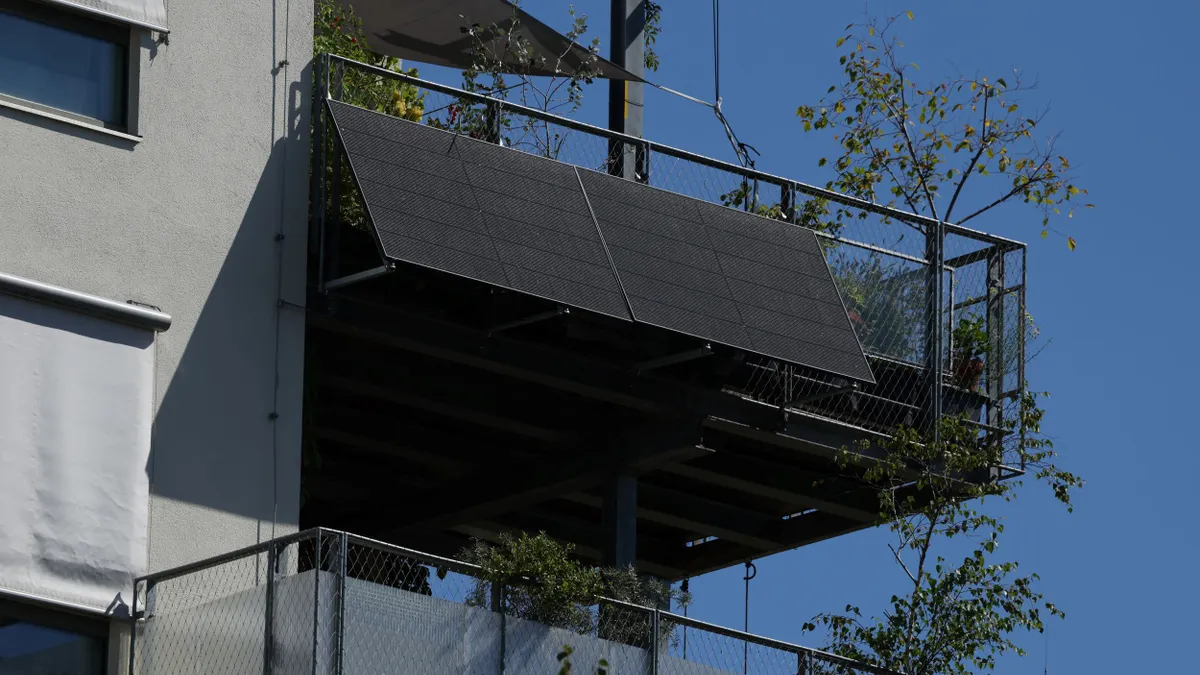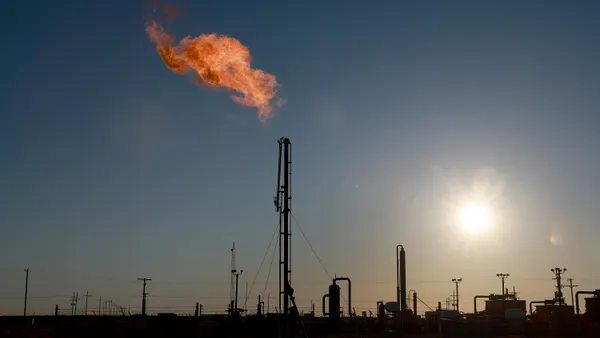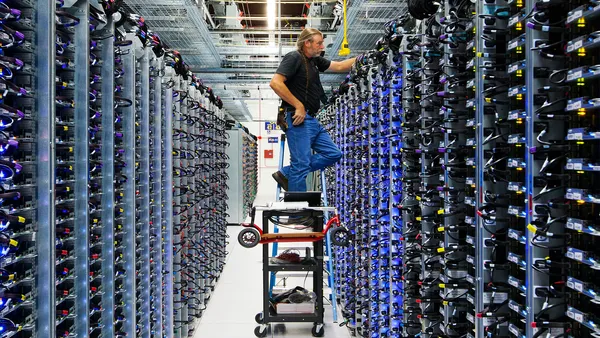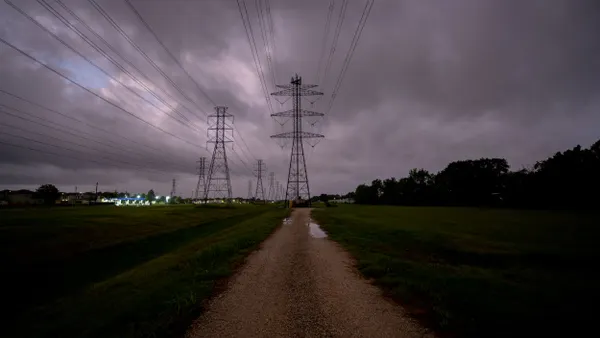Dive Brief:
- Secretary of Energy Rick Perry told a House committee hearing on Thursday his agency is likely to take some action to keep retiring coal and nuclear plants online, though he stopped short from committing to a particular policy.
- When a House member called on Perry to "use whatever legal power you have" to save at-risk generators, Perry said that is "exactly what has to happen." Allowing the plants to retire could threaten national security, the DOE head said.
- Perry's comments come two weeks after utility FirstEnergy asked DOE to invoke emergency cost supports for coal and nuclear plants in the PJM Interconnection under Section 202(c) of the Federal Power Act. Perry said on Monday that a 202(c) order may not be the "most appropriate" way to address plant retirements and on Wednesday released an unofficial request for comment on that section of the statute.
Dive Insight:
Whether or not DOE approves FirstEnergy's 202(c) request, Thursday's hearing at the House Energy and Commerce Committee provided the clearest indication yet that the secretary wants to find a new way to save at-risk generators from retirement.
During the hearing, Rep. David McKinley (R-WV) called on Perry to act on the 202(c) request or use "whatever legal power you have" to ensure coal and nuclear plants do not retire.
"Some form of 202(c) or some other emergency act is necessary if we’re going to have national security," McKinley said. "I’m calling on you to use whatever legal power you have so ... we can have a reliable grid system."
"I hope your remarks have been televised and we can put them up," Perry responded, "because you have succinctly made the point of exactly what has to happen in this country from the standpoint of being able to protect the resilience and reliability of our electric grid."
Perry said that the retirement of coal and nuclear plants could put national security at risk by threatening the reliability of the power supply.
"If you're in New York City and Wall St. were to lose power, anyone would say that puts our national security in jeopardy," Perry offered as an example.
The national security comments build on remarks Perry made to Utility Dive earlier this week in New York. There, the secretary said plant economics are not "the issue" DOE is focused on in its evaluation of FirstEnergy's request — a significant statement given that one of his deputies had said DOE "would never use a 202 [order] to stave off an economic issue."
Perry's comments also closely resemble often-used arguments from coal interests, including FirstEnergy, which wrote in its request that "the Nation’s security is jeopardized if DOE does not act now" to support at-risk plants.
Federal energy regulators say those national security concerns conflict with actual grid conditions. Last September, DOE asked the Federal Energy Regulatory Commission to subsidize many of the coal and nuclear plants targeted by FirstEnergy's proposal, but regulators unanimously rejected DOE's request in January, saying no reliability emergency exists to justify the payments.
A 202(c) order could allow Perry to keep the plants online in the event of a grid emergency, but such actions are typically taken in response unexpected grid conditions like a natural disaster. Energy lawyers say DOE would likely face immediate legal challenges if it approved the FirstEnergy request or other generation supports absent those emergency conditions.
It also remains unclear how supporting coal and nuclear plants would alleviate Perry's national security concerns. The secretary on Monday also used the Wall St. power outage example to justify plant subsidies, but nuclear units in New York are already supported by a state subsidy program.
In October, New York ISO officials told FERC that even if all supply of natural gas was cut off, the state would still have a reserve margin of 4.3 GW. The two remaining coal plants in the state supply just over 1 GW of capacity and contributed 1% of the state's electricity in 2016, according to an ISO report.
Amid those concerns, DOE on Wednesday released a statement calling for comments on Section 202(c), but stressed that it does not establish an official regulatory docket or limit Perry's ability to act on FirstEnergy's application.
Perry on Thursday committed to release the responses to that request publicly, but did not say when that would happen.
"It’s not a formal comment period because there has been no formal comment opened up," Perry said.



